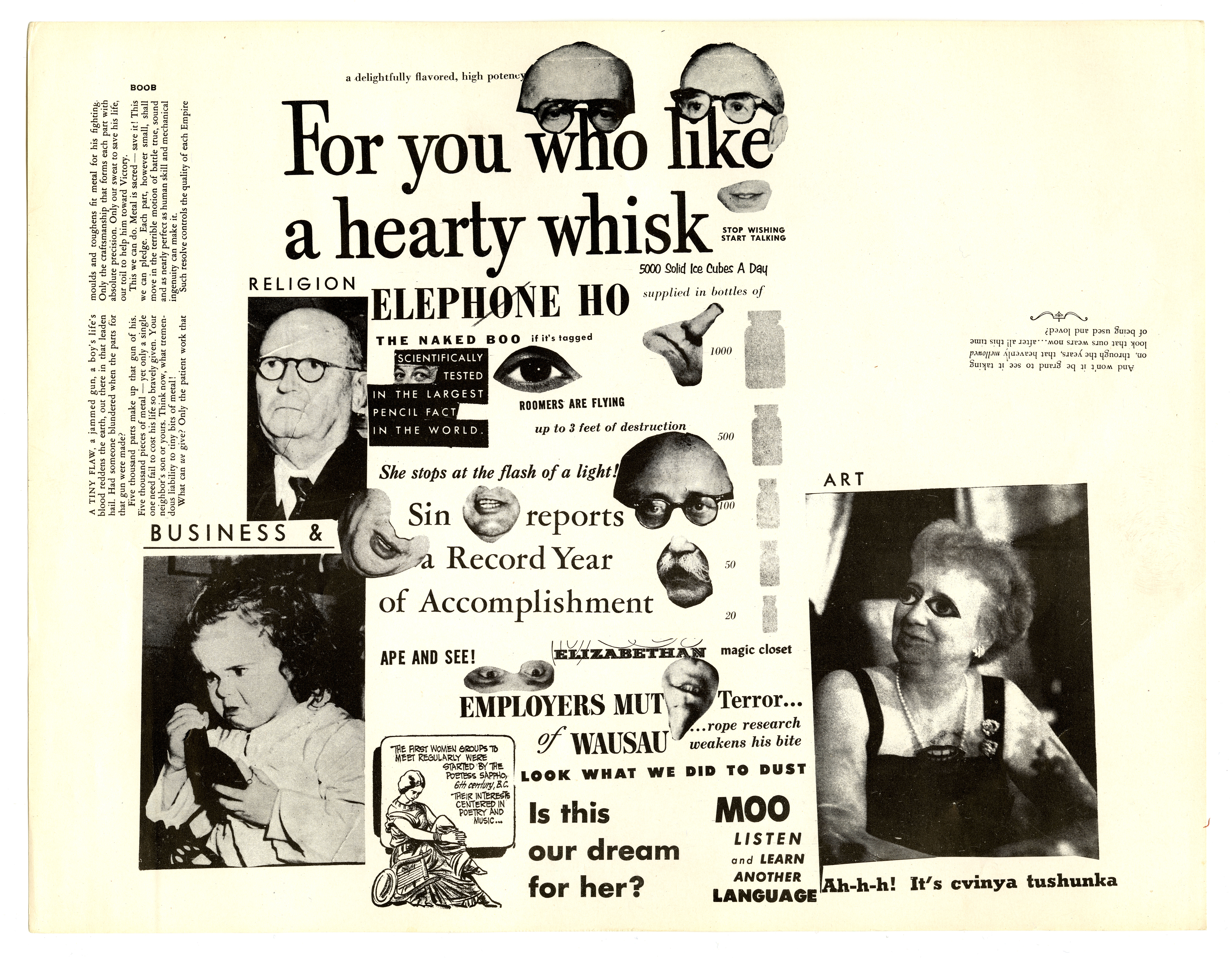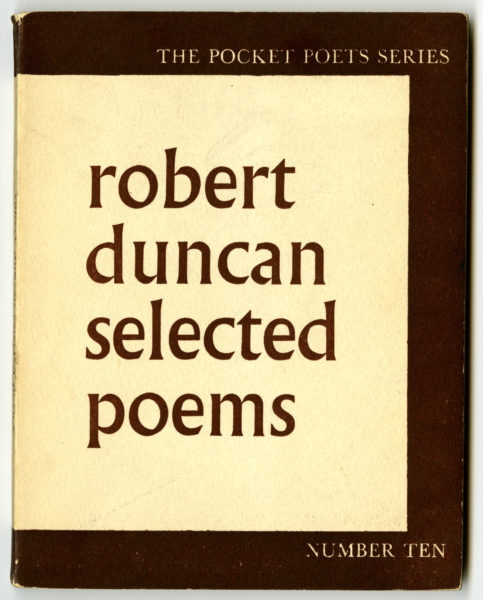The Black Mountain Poets took their name from Black Mountain College, an experimental arts school in North Carolina that opened in 1933. They formed a movement that often overlapped with the Beats. Black Mountain faculty included Charles Olson, Robert Duncan, and Robert Creeley. Olson invited Creeley to teach at Black Mountain in 1954 and to become editor of the fledgling Black Mountain Review. The review’s final volume, Black Mountain Review #7, was produced with editorial input from Allen Ginsberg in San Francisco after the art school closed in 1956. Along with several of the Black Mountain Poets, it featured work by Ginsberg, Jack Kerouac, William S. Burroughs, Michael McClure, Gary Snyder, and Philip Whalen.
Black Mountain Review, no. 7, 1957,
edited by Robert Creeley (with Allen Ginsberg)
Robert Creeley
Le Fou, 1952
Golden Goose Press, Columbus, Ohio. Signed by the author
Helen Adam
Ballads, 1964
Introduction by Robert Duncan, hand-colored cover by Jess. Author’s Edition.
Robert A. Wilson Collection
Charles Olson
Human Universe and Other Essays, 1965
Auerhahn Press, San Francisco. Cover woodcut by Robert LaVigne
Robert A. Wilson Collection.
Charles Olson
Projective Verse, 1959
Totem Press, New York
Charles Olson was famous for developing the concept of “projective verse”—an open form of poetry based on chant-like rhythms of breath. He advocated “composition by field,” in which a poem is composed through process rather than adhering to a prescribed format.
Photographer unknown
[Charles Olson at Black Mountain College], ca. 1952
two gelatin silver prints. Robert A. Wilson Collection
Robert Duncan and Jess
Inspired by Charles Olson, Robert Duncan used layered imagery in collage-like poems. His work relates to that of his life partner, artist Jess (Collins), with whom he frequently collaborated. Jess produced dense collages from found imagery. Jess and Duncan also worked with poet Helen Adam, an integral figure associated with the San Francisco Renaissance in poetry.
Robert Duncan, Jess (Collins)
Boob Number One, A Dada Derivative, Lovely Lovely Lovely, 1952
self-published. Illustrated broadside
Robert Duncan
Selected Poems, 1959
City Lights Books, San Francisco. Pocket Poets
Series no. 10

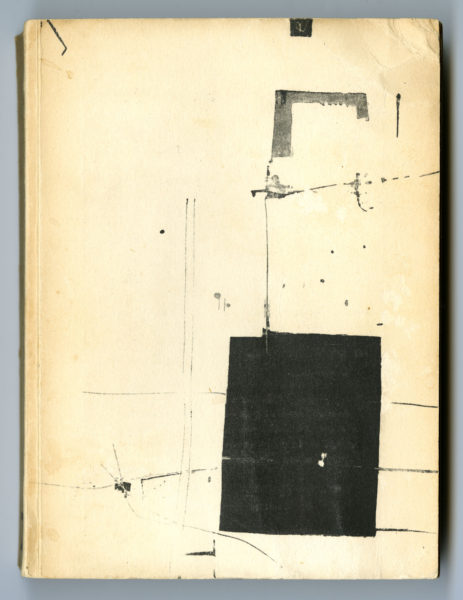
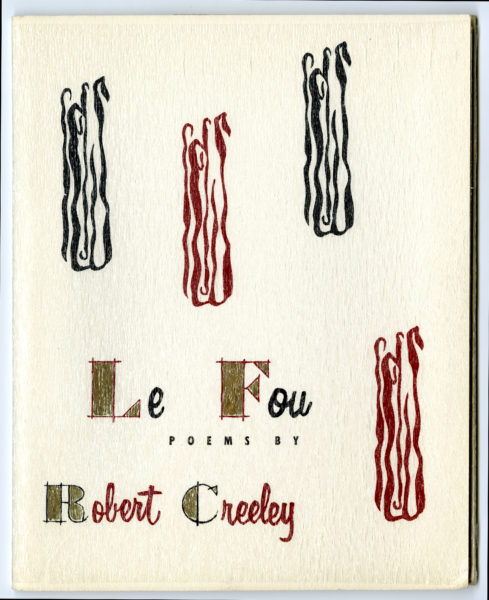
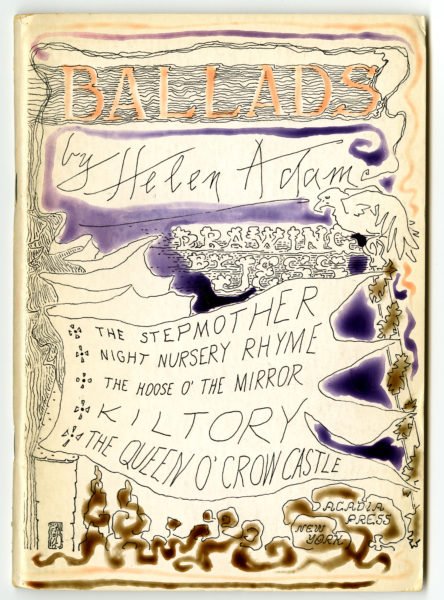
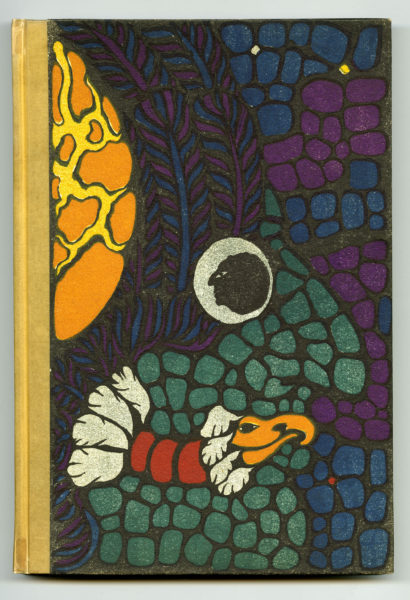
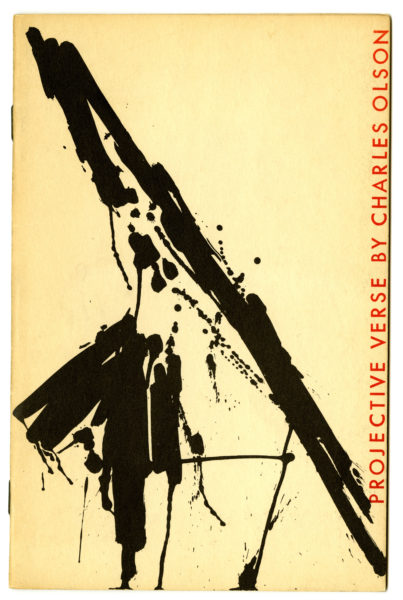
![Photographer unknown. [Charles Olson at Black Mountain College], ca. 1952. (1) Photographer unknown. [Charles Olson at Black Mountain College], ca. 1952. (1)](https://exhibitions.lib.udel.edu/beat-visions-and-the-counterculture/wp-content/uploads/sites/11/2019/10/olson_charles_bk_mtnn_college001.jpg)
![Photographer unknown. [Charles Olson at Black Mountain College], ca. 1952. (2) Photographer unknown. [Charles Olson at Black Mountain College], ca. 1952. (2)](https://exhibitions.lib.udel.edu/beat-visions-and-the-counterculture/wp-content/uploads/sites/11/2019/10/olson_charles_bk_mtnn_college002.jpg)
